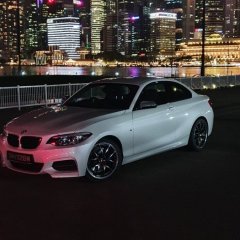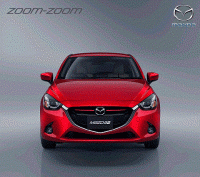Search the Community
Showing results for tags 'rebates'.
-
Doing so amounts to a subsidy on private transport and will have counter-productive effects, says the Finance Minister. Source: https://www.channelnewsasia.com/singapore/fuel-price-subsidy-petrol-pump-prices-road-tax-rebate-lawrence-wong-2606276 SINGAPORE: Singapore will not reduce or suspend fuel duties or provide road tax rebates despite the recent increase in pump prices, Finance Minister Lawrence Wong said on Monday (Apr 4), adding that these measures effectively amount to a subsidy on private transport and will have "counter-productive effects". "Fewer than four in 10 households in Singapore own cars, and amongst the lowest quintile, only about one in 10 do ... Such subsidies on private transport would therefore benefit a relatively small but generally better-off group," Mr Wong told Parliament in a ministerial statement on inflation and business costs. "Cutting fuel duties also means that some of the subsidies will flow back in part to producers and suppliers themselves, not just to consumers, as the pump price may not fall as much as the reduction in duty. "More importantly, such subsidies will reduce the incentive to switch to more energy-efficient modes of transport, which is a critical element in our plans for sustainable living." On the last point, Mr Wong likened fuel duties to a "carbon tax", pointing out that Singapore does not impose such a tax on fuel. "We are already moving in the right direction on carbon tax, to raise carbon tax, to accelerate our green transition and to achieve our net zero target. So, it will not be consistent as we move on that front to, on the other hand, reduce fuel duties," he said. Pump prices in Singapore have risen to record levels in recent weeks, amid a spike in global crude oil prices caused by a supply crunch and the war in Ukraine. New Zealand said on Mar 14 that it will reduce fuel excise tax and halve public transport fares for three months to help offset the surge in petrol prices caused by Russia's invasion of Ukraine. In Singapore, Mr Wong highlighted that the country collects fuel duties and road taxes for revenue, and also to price the negative externalities of vehicle transport, such as the impact on public health and the environment. Fuel duties collected averaged S$920 million a year over the last five years, and revenue from these duties and taxes adds to the pool of resources available for various programmes and subsidies that "directly benefit" Singaporeans, he said. Mr Wong said the Government should "think carefully" before giving up such sources of revenue, particularly when Singapore is facing "considerable revenue changes already". MP Xie Yao Quan (PAP-Jurong) then asked whether the Government could consider reducing fuel duties on diesel, highlighting that it is used by vehicles that move Singapore's supply chain and deliver essential goods and services. "Whether it is diesel or petrol, fuel duties, aside from the issue of who benefits, also has an important externality consideration," Mr Wong responded, saying that he risked sounding like a "broken record". "For that matter, our diesel duty is already not that high, compared to fuel duties. From an externality point of view, we do need to have the duty in place in order to, as we all talked about, wanting to move greener, wanting to embrace more energy-efficient modes of transport, a point which everyone supported incidentally in this House not too long ago. "And then now, at the first sign of price rising, we are wanting to withdraw so quickly. I think, let's have some perspective on seeing the broader considerations and challenges. Yes we have indeed an immediate issue of inflation to tackle, but we also want to press ahead with our net-zero plans and our green transition." GROUPS AFFECTED BY HIGH PUMP PRICES Mr Wong noted, however, that some groups, like taxi and private-hire car drivers, as well as delivery riders, are particularly affected by the increase in petrol and diesel prices. "Various taxi and private-hire car operators have implemented temporary increases in fares to help cushion the higher fuel prices for drivers, and to have consumers share the burden," he added. "They also have tie-ups with petrol companies to offer fuel at discounted prices, to help drivers and riders manage higher fuel costs." Those whose incomes are impacted and are in need of financial assistance can approach the social service officers, community centres or self-help groups, Mr Wong stated.
- 41 replies
-
- 2
-

-
.png)
-
- fuel duties
- road tax
-
(and 1 more)
Tagged with:
-
Harder to get green rebates when tighter vehicle emission standards kick in PUBLISHED JAN 25, 2022, 4:39 PM SGT SINGAPORE - It will be significantly tougher for cars to qualify for rebates when a new emission-based tax scheme kicks in as early as next year. All other things being equal, the scheme is also likely to mean higher prices or fewer options for buyers if importers fail to source cleaner models. The Vehicle Emissions Scheme (VES), which doles out tax rebates and surcharges based on a car's emissions, turns five at the end of this year. The National Environment Agency (NEA) has proposed a revised scheme to motor traders, with lower thresholds for the five pollutants measured. https://www.straitstimes.com/singapore/transport/harder-to-get-green-rebates-when-tighter-vehicle-emission-standards-kick-in
-
Just read Citibank is stopping this and rebates will expire 2nd May. SMS CRBTBAL <SPACE><last 4 digits of your card> to 72484 (Example: CRBTBAL 0123) to find out how much rebate you have. I have enough for 2 Starbucks ☕ http://www.citibank.com.sg/gcb/credit_cards/credit-card-citi-rebate.htm
- 6 replies
-
- 5
-

-
- citibank rebates
- citibank
-
(and 2 more)
Tagged with:
-
Hi Forumers,i just got my Mazda 6,this car have a green car rebate of $5000...but don't get happy,i got my log card,the $5000 is deducted from my scrap value at the 10th year,my car got an O.M.V. $27,500,if no rebate,my scrap value is 55% of O.M.V., which is $15125,now my scrap value is $10125,that means the $5000 is actually my own $$$,i only paid $5000 less up front,so this type of C.E.V.S. is like L.P.P.L.,you guys understand.?Let's says if you car's O.M.V. is about $25,000,your green rebates are $15,000,[for example VW Golf]that means on the 10th year you got nothing back from the G'ovt....real s--t.
-
Got a question for all experts here, assuming i scrap my car and end up with the paper certs from LTA. And if I go on to buy a brand new car, can i use these certs to offset the purchase? I hear that I can do that with no "penalty" on the cert values, rite? Is this only true for distributors like Kah, BM .... How about for PI? Are they subject to this? Or can they deduct some % off as "commission"? Thanks!
-
such as Engine Oil, other than autosaver, any other workshops to reccomend?
- 11 replies
-
- honda
- hondaworkshops
- (and 5 more)
-
http://www.channelnewsasia.com/stories/sin...1239830/1/.html how does it work? rebate upon purchase new car?
-
By Channel NewsAsia | Posted: 01 July 2008 1419 hrs SINGAPORE: Car owners will now have the option to exchange their Preferential Additional Registration Fee (PARF) and the Certificate of Entitlement (COE) rebates for cash. The change follows a government review of the rebates to make it easier for motorists to give up their cars and switch to public transport. From September 1, registered owners of un-used and valid PARF/COE rebates can apply to the Land Transport Authority for encashment. Once their applications are processed, they will receive a refund equivalent to the rebate amount. To facilitate the implementation of this change, PARF/COE rebates with expiry dates between July 1 and September 29 will be extended to the end of September. Those affected will be informed of the revised expiry dates within the next two weeks. Motorists who wish to use their PARF/COE rebates to offset the upfront taxes for a new vehicle can continue to do so. The LTA says it will continue to issue rebates to car owners upon de-registration of their vehicles. The rebates will remain transferable and valid for 12 months to provide flexibility to vehicle owners. Transport Minister Raymond Lim had announced in March this year that the government would be reviewing the PARF and COE rebates. This was to tie in with the overall effort to make public transport a choice mode for all commuters, including car owners. - CNA/yb http://www.channelnewsasia.com/stories/sin.../357513/1/.html[/b] at last some good news for car owners giving up on their rides.
-
http://news.asiaone.com/News/Latest+News/S...111-321097.html so wtf are they trying to do? encourage ppl to leave work early so that thery can avoid the jam? TRAIN commuters who travel during peak morning periods could get more monetary rewards if they change their travel times to off-peak periods. These rewards, that can come in the form of stored value, are redeemable using credits which commuters earn when they use their ez-link cards to travel during non-peak commutes. This is part of a research study conducted by the National University of Singapore (NUS) and Stanford University and supported by the Land Transport Authority (LTA). The six-month project aims to encourage off-peak commutes to reduce overcrowding on trains, and to study the effect of monetary incentives on passenger travel behaviour. Commuters who participate in the project can earn one credit point for every kilometre travelled during the peak-hour period between 7.30am and 8.30am. For non-peak hours between 6.30am and 7.30am, and 8.30am and 9.30am, they will get three credits per kilometre. Additionally, pre-selected "boost days" will allow commuters to get five credits for off-peak morning commutes. These credits can be exchanged for cash value in their ez-link cards on a monthly basis through AXS machines. Every 100 credits, or 100 kilometres travelled, will translate to $1. Alternatively, commuters can try to get more cash value for their cards by using their credits to play an online mini-game. Researchers behind the project aim to enlist the help of 20,000 people for the $450,000 project. During a media briefing at NUS yesterday, Professor Balaji Prabhakar from Stanford University said that a shift of 10 per cent in the number of commuters who travel during peak periods will "lead to a sizeable reduction" of passengers on board trains. Drawing from previous studies in India and the United States where similar incentivised approaches yielded positive results, Prof Balaji said: "We believe incentives are effective in changing the actions that people take on an everyday basis." Currently, SMRT has a discount scheme that offers passengers a rebate of up to 30 cents on their fares if they travel before 7.45am and exit at stations in the city. It was launched in October last year. LTA, which pumped $263,000 into the project, said such initiatives would allow better evaluation of incentive programmes and their effectiveness in easing the travel crunch on the rail network here. Its group director for corporate planning and research, Mr Lew Yii Der, said: "Travel-demand management is an area LTA has been actively exploring as it encourages more optimal use of public-transport capacity." Commuters my paper spoke to welcomed the initiative, saying it is a good way to ease the overcrowding on trains. Undergraduate Bruce Lim, 24, explained: "You are technically paying people just to adjust their trips slightly. "I think it's a good idea; hopefully, people will make the effort to make a change."
-
....wah jialat liddat. Now Gahmen must take care of ppl liddis too.....knn, never hear of taxi ah OWNING a car is a necessity, not a dream, for a family with young children. Just think of the daily morning rush to send a child to day care or a baby to the grandparents' homes. From prams to milk bottles, diapers to food, change of clothing to wet wipes, the list of mandatory baby or child supplies is long and difficult to trundle if one has to resort to public transport. The weekend is short when one has children and errands must be undertaken with the entire family in tow. How do you visit the bank, take the child to the doctor, buy groceries and visit the grandparents in a day? Answer: By having a car, which makes a significant difference in the quality of life for Singapore families. The Government has announced further reduction in vehicle growth rate which will ratchet up prices of certificates of entitlement (COE) further, beyond the reach of young couples. The Government should consider offering COE rebates for cars with 1,600cc capacity and less to families with at least one child, and rebates for bigger-capacity cars to families with at least two children. The latter takes into consideration families with grandparents, two young children (two car seats required) and a maid. For a family with young children, a car is not an optional, flashy plaything. Wang Siang Ling (Ms)
-
I am driving an OPC 1.5L car. Recently government announced that road tax will be cut 15% due to shift in emphasis towards ERP. My yearly road tax used to be $74. Now after rebates I am not supposed to pay anything. However, stated in LTA website, the yearly OPC is subjected to minimum $50. Therefore my savings on road tax is only $24 and I have to pay more ERPs at Orchard road, Singapore river line and CTE. I am feeling so frustrated with LTA. Anyone else share the same feeling as me? I am now considering to upgrade to OPC 1.8L. Nice car
-
Government will undertake a review of the Preferential Additional Registration Fee (PARF) and Certificate of Entitlement (COE) rebates , with a view to make it easier for car owners to give up their cars and switch to public transport. In order to make it easier for car owners to give up their cars and switch to public transport, the Land Transport Authority will now allow cash exchanges of un-used and valid PARF/COE rebates. This is an additional option available to owners. Owners who want to use their rebates to offset the upfront taxes payable for a new vehicle according to the practice today can continue to do so. The LTA will continue to issue rebates to vehicle owners upon de-registration of their vehicles. The rebates will continue to be transferable and be valid for 12 months. This serves to provide flexibility to vehicle owners. PARF/COE rebate owners may submit their applications for encashment online through the ONE.MOTORING portal from 1 September 2008. Alternatively, they can mail the completed application form (Form FR02) for encashment (downloadable from www.onemotoring.com.sg) to the LTA from 1 September 2008. Once the application is successfully processed by the LTA, the registered owners of the PARF/COE rebates will receive a refund equivalent to the rebate amount via cheque at their registered address or through GIRO credit into their designated refund bank account registered with the LTA. The LTA will provide more details on the procedures for application for encashment nearer the implementation date of 1 September 2008. Extension of Validity Period for PARF/COE Rebates Expiring between 1 July 2008 and 29 September 2008 To facilitate the implementation of this change for the benefit of rebate owners, PARF/COE rebates that are still valid and un-used with expiry dates between 1 July 2008 and 29 September 2008 (both dates inclusive) will be extended to 30 September 2008. Affected owners will receive a notification from the LTA on the revised expiry date of their PARF/COE rebates within the next 2 weeks.
-
Abstract from CNA, http://www.channelnewsasia.com/stories/sin.../357513/1/.html SINGAPORE: Car owners will now have the option to exchange their Preferential Additional Registration Fee (PARF) and the Certificate of Entitlement (COE) rebates for cash. The change follows a government review of the rebates to make it easier for motorists to give up their cars and switch to public transport. From September 1, registered owners of unused and valid PARF/COE rebates can apply to the Land Transport Authority for encashment. Once their applications are processed, they will receive a refund equivalent to the rebate amount. To facilitate the implementation of this change, PARF/COE rebates with expiry dates between July 1 and September 29 will be extended to the end of September. Those affected will be informed of the revised expiry dates within the next two weeks. Motorists who wish to use their PARF/COE rebates to offset the upfront taxes for a new vehicle can continue to do so. The LTA says it will continue to issue rebates to car owners upon de-registration of their vehicles. The rebates will remain transferable and valid for 12 months to provide flexibility to vehicle owners. Transport Minister Raymond Lim had announced in March this year that the government would be reviewing the PARF and COE rebates. This was to tie in with the overall effort to make public transport a choice mode for all commuters, including car owners.
-
FAMILIES living in HDB homes will receive utility rebates of up to $220 in the next six months, with those in smaller flats getting more. In all, about $134 million will be given out to more than 780,000 HDB households this fiscal year, said the Ministry of Finance yesterday. The rebates will be given in two stages: the first next month and the second tranche in January next year. People living in one- or two-room flats, for example, will get rebates totalling $220, while those living in a four-room flat will receive $190, the statement said. These Utilities-Save (U-Save) rebates were introduced last year, to be given out annually for five years. Altogether, $550 million will be disbursed. The rebates are part of a $4 billion package to offset the 2 percentage point hike in the goods and services tax, which kicked in last year. Singapore Power will inform families of what they will get in their July utility bill. The sum will be used to offset a family's bill directly. The ministry said that, for most families, next month's rebates were more than enough to cover this year's tariff increases when coupled with those given out in January this year. So GOOD ?
-
http://www.info.hsbc.com.sg/hsbc_mapcontest/ Take part in HSBC's Trivia Quest Are you familiar with the iconic landmarks and places in Singapore? Challenge yourself to HSBC
-
Source: http://www.channelnewsasia.com/stories/sin.../338180/1/.html By Asha Popatlal, Channel NewsAsia | Posted: 30 March 2008 1638 hrs SINGAPORE: The Land Transport Authority (LTA) is considering giving cash instead of credits when one gives up his or her car to persuade more people to opt for public transport. Transport Minister Raymond Lim said he has asked LTA to work with the Finance Ministry to see if Certificate of Entitlement (COE) and Additional Registration Fee (ARF) rebates can be given in cash when motorists decide to give up their cars. This study should take about four to six months. A whole slew of measures was announced from late January on improving bus and rail services to get more people to use public transport. A more extensive ERP system was also set up as part of the deal to keep traffic smooth. But what kind of push do people actually need to give up their cars? One idea that has been tossed about and was recently brought up by MP Inderjit Singh during the Budget debate is to give cash incentives. The current situation is that when a motorist gives up his or her car, ARF and COE rebates are given in terms of credits. In order not to lose out, motorists usually end up using these credits to purchase another car. Many people have given the feedback that if these rebates are given to them in cash, it would be more of an incentive for them not to buy another car. But by that same token, motorists could
-
hi, i came across quite a no of PI... in fact alot of them r selling cars at the price lower than sgcarmart wif some saying eg.2 bid guranteed coe without top-ups. Price before cash rebate... can i noe wat is there to top up for the coe and wat's cash rebate? thanks
-
sorry for asking a noob qns...but how does it work?u buy the car at the advertised price, then they give u back the stated amount of $$$ as rebates?
-
Thought I'd get some attention. It seems to be the rage nowadays, PI/AD offering cash rebates so that the banks can tie you to fulfilling the loan tenure. I only know that's one of the catch i.e. the tie-up. The other would be the higher interest for the loan if u do take up the rebate. My question is, is it really worth it to take the rebates, knowing u will drive the car for more than the loan period? Or its just another gimmick?
-
myprecious next time buying a new hyundai can look for me please :) cheers
- 6 replies
-
- Myprecious
- Cash
-
(and 2 more)
Tagged with:







